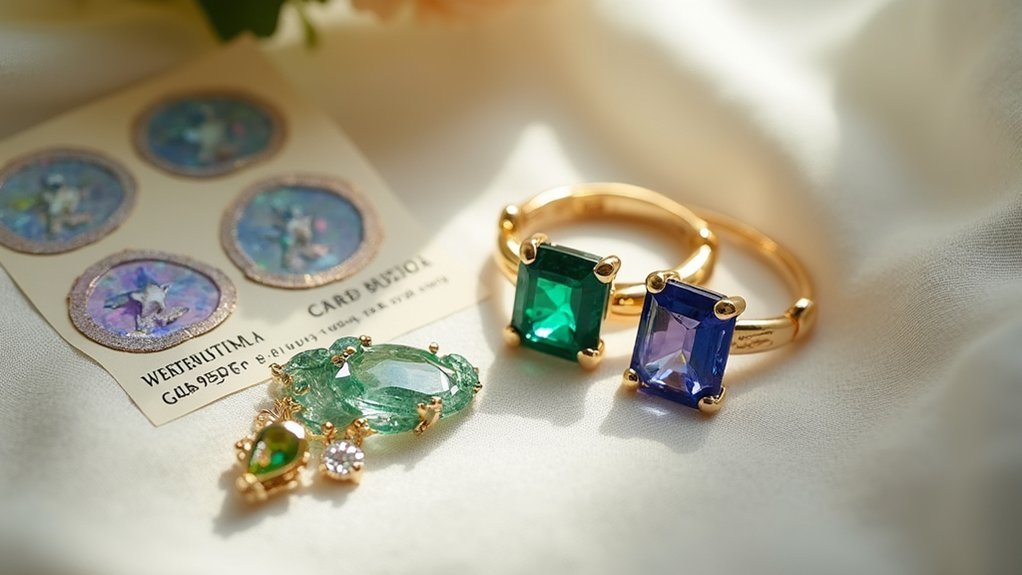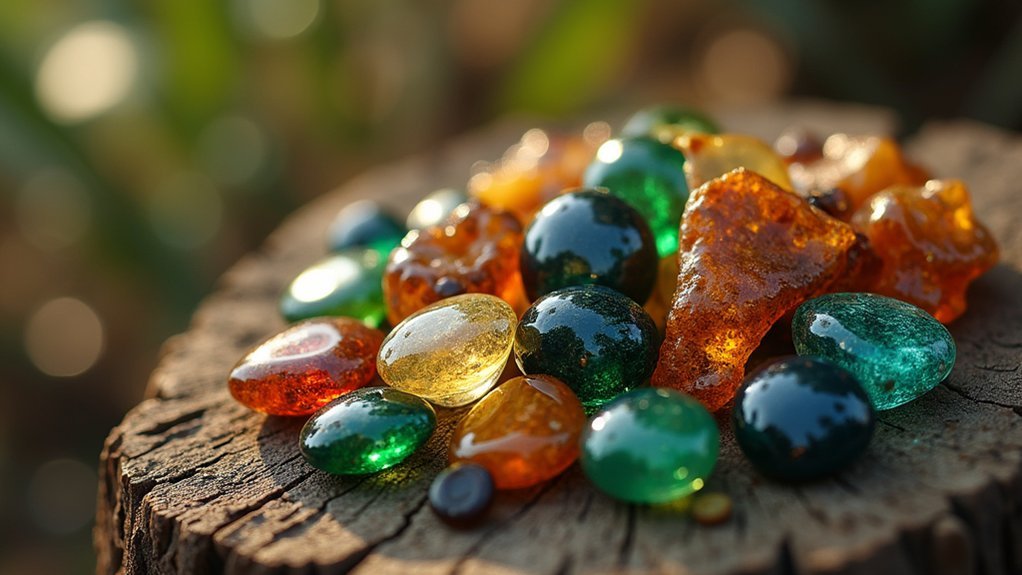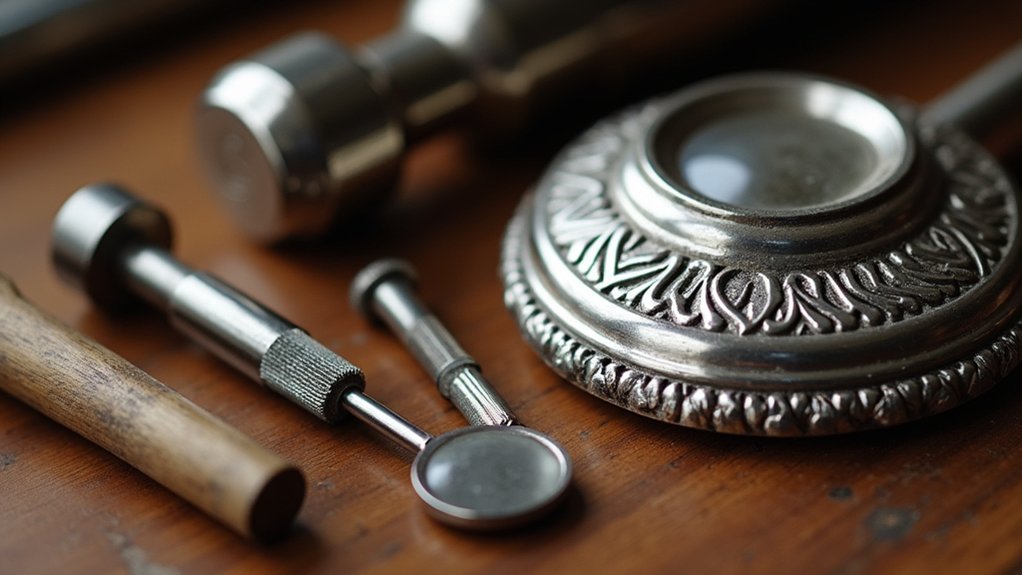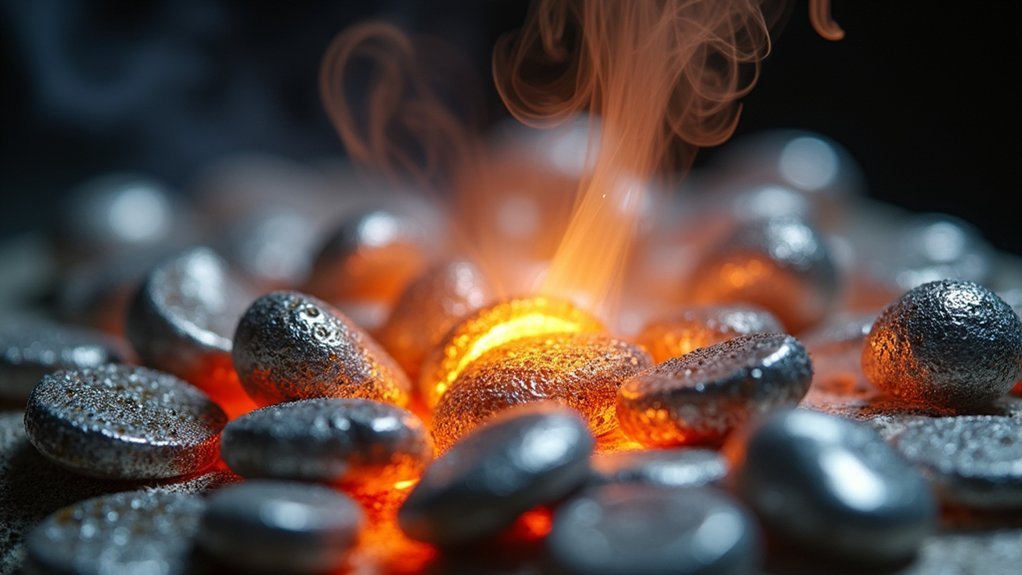You can source ethical gold, silver, and gemstones by following three key strategies. First, verify certifications from Fairtrade, Fairmined, or the Responsible Jewellery Council that guarantee conflict-free materials and fair labor practices. Second, choose recycled metals and lab-created stones, which reduce greenhouse gas emissions by up to 99.8% while eliminating mining concerns. Third, support local artisans and responsible miners who reinvest in their communities and provide transparent supply chains. These practices will help you discover additional ways to maximize your positive impact.
Verify Certifications and Transparency Standards

When you’re shopping for ethical jewelry, start by verifying that pieces carry certifications from recognized organizations like Fairtrade, Fairmined, or the Responsible Jewellery Council (RJC).
These verify certifications guarantee ethical sourcing practices and fair labor conditions throughout the supply chain. Look for specific labels like the Kimberley Process for conflict-free diamonds and Fairmined certification for responsibly sourced gold from small-scale miners.
Transparency is essential—choose brands that openly disclose their sourcing methods and provide detailed material origins.
Ethical companies willingly answer questions about their practices. Consider the environmental impact of materials; recycled metals reduce greenhouse gas emissions by up to 99.8% compared to newly mined alternatives.
Familiarize yourself with relevant ethical certifications to make informed purchasing decisions that support responsible practices.
Choose Recycled and Lab-Created Materials
Since environmental impact matters just as much as ethical sourcing, you’ll want to prioritize recycled and lab-created materials when shopping for jewelry.
Recycled metals like gold and silver reduce greenhouse gas emissions by up to 99.8% compared to newly mined materials. You can source recycled silver from used jewelry and industrial waste, creating a circular economy that minimizes environmental degradation.
Lab-grown diamonds offer an excellent alternative to mined stones, eliminating conflict sourcing concerns while providing affordable, high-quality options.
Similarly, lab-created ethical gemstones free you from the ethical dilemmas of traditional mining, including child labor.
Look for Fairmined certification when choosing recycled gold, ensuring responsible small-scale miners receive fair wages and work under safe conditions.
Support Local Artisans and Responsible Miners

How can you guarantee your jewelry purchases directly benefit the communities behind their creation? When you support local artisans and responsible miners, you’ll ascertain community profits stay local while promoting ethical practices. Artisanal mining operations often provide fair wages and safer conditions, with certifications like Fairmined tripling miners’ earnings. You’ll trace origins more easily when working with local jewelers, enhancing transparency throughout the supply chain.
| Impact Area | Local Artisans | Responsible Miners |
|---|---|---|
| Economic | Custom pieces reflecting values | Premium payments for certified gold |
| Environmental | Sustainable practices with recycled materials | Reduced ecological footprint |
| Social | Direct community investment | Improved living conditions and infrastructure |
These partnerships create lasting change while providing you with beautiful, ethically-sourced jewelry that reflects your values.
Frequently Asked Questions
How Can I Verify if a Supplier’s Ethical Claims Are Genuine?
You’ll need to request detailed documentation, visit facilities when possible, check third-party certifications, verify references from other clients, and cross-reference their claims with independent audits or industry databases.
What Price Premium Should I Expect for Ethically Sourced Materials?
You’ll typically pay 10-30% more for ethically sourced materials compared to conventional options. Premium varies by supplier, certification level, and material type. Factor this into your pricing strategy when budgeting for responsible sourcing.
Are There Insurance Considerations When Purchasing Ethical Jewelry?
You’ll need detailed documentation proving authenticity and ethical sourcing for insurance claims. Standard policies typically cover ethical jewelry, but you should verify coverage limits and consider specialized jewelry insurance for high-value pieces.
How Do I Properly Store and Maintain Ethically Sourced Gemstones?
Store your gemstones separately in soft pouches to prevent scratching. Clean them gently with mild soap and water. Avoid harsh chemicals and extreme temperatures. Keep them away from direct sunlight to preserve their color and brilliance.
Which Specific Mining Regions Are Considered Most Problematic to Avoid?
You’ll want to avoid conflict diamond regions in Central African Republic, Sierra Leone, and Angola. Also steer clear of Myanmar rubies, Kashmir sapphires from disputed areas, and tanzanite from unregulated Tanzanian mines.
In Summary
You’ve got the power to make ethical jewelry choices that truly matter. By verifying certifications, choosing recycled or lab-created materials, and supporting responsible miners, you’re creating positive change in the industry. Don’t compromise on your values when shopping for precious metals and gems. Your conscious purchasing decisions protect workers, communities, and the environment while still giving you beautiful pieces you’ll treasure forever.





Leave a Reply